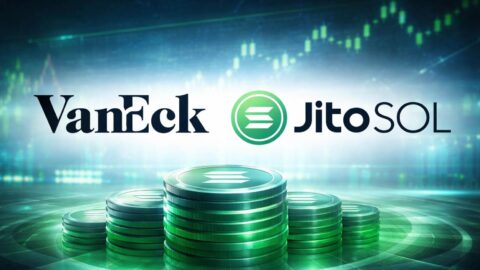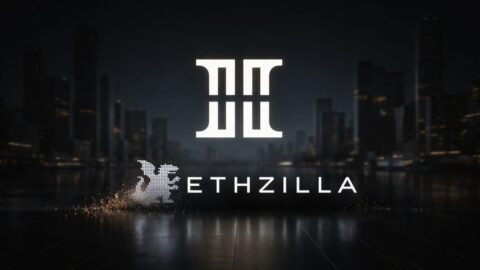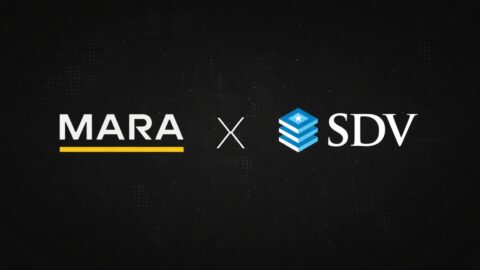CleanSpark is transforming its Bitcoin mining profits into the foundation of a bold new venture into artificial intelligence infrastructure.
Key Takeaways
- CleanSpark sold 589.88 Bitcoin in October 2025, generating $64.9 million in non-dilutive capital.
- The funds were used to acquire 271 acres of land and 285 megawatts of power capacity near Houston, Texas, for AI-focused data centers.
- The company produced 612 Bitcoin in October and now holds a total of 13,033 Bitcoin, with more than 5,400 of them posted as collateral or receivables.
- CleanSpark has officially launched its AI and high-performance computing strategy, hiring industry veteran Jeffrey Thomas and partnering with Submer for infrastructure support.
What Happened?
Bitcoin mining company CleanSpark has taken a strategic leap by selling a portion of its crypto reserves to fund a major expansion into the artificial intelligence space. In October 2025, the company sold nearly 590 Bitcoin for almost $65 million, achieving an average sale price of $110,057 per Bitcoin. These proceeds are being reinvested into a massive infrastructure project outside Houston, Texas.
— CleanSpark Inc. (@CleanSpark_Inc) November 4, 2025
CleanSpark’s Strategic Shift Toward AI
CleanSpark has long been recognized as a leader in sustainable Bitcoin mining, but its latest move signals a deeper ambition. The company used its October Bitcoin sale to purchase 271 acres of land and secure 285 megawatts of long-term power agreements for a new data center dedicated to AI and high-performance computing.
CEO Matt Schultz emphasized the company’s shift in direction, stating, “These milestones show that we’re not just talking about growth – we’re executing it.” He reaffirmed that Bitcoin remains central to their operations, but the company is now equally focused on building infrastructure to support the next generation of digital technology.
This new data center is expected to go live in the second half of 2027, providing CleanSpark with a critical foothold in the fast-growing AI computing market.
By the Numbers: October Performance Highlights
CleanSpark’s mining operations remained strong in October 2025:
- 612 Bitcoin produced for the month.
- 6,537 Bitcoin mined year-to-date.
- Peak single-day production: 20.42 Bitcoin.
- Average daily production: 19.75 Bitcoin.
- Operational hashrate: 50 EH/s.
- Average operating hashrate: 46.6 EH/s.
- Deployed mining fleet: 240,271 machines.
- Fleet efficiency: 16.07 J/Th.
- Total Bitcoin holdings: 13,033.
- Utilized peak power: 808 megawatts.
- Total contracted power: 1.31 gigawatts.
The company continues to lead with scale and efficiency, operating one of the largest mining fleets in North America.
Building the AI Future
CleanSpark has taken deliberate steps to support its transition into AI infrastructure:
- Appointed Jeffrey Thomas to head its AI data center development. Thomas brings decades of experience in large-scale computing infrastructure.
- Partnered with Submer, a leader in immersion cooling technology, to optimize efficiency and sustainability in its future data centers.
CFO Gary Vecchiarelli reinforced the company’s integrated strategy, saying:
Sector-Wide Movement Toward AI
CleanSpark is not alone in pivoting toward AI and HPC. Several mining firms are making similar moves:
- IREN (formerly Iris Energy) signed a $9.7 billion deal with Microsoft and a $5.8 billion GPU agreement with Dell Technologies, rebranding as an AI infrastructure provider.
- Riot Platforms, Cipher Mining, and TeraWulf have all announced expansions into high-performance computing.
The trend reflects a broader shift across the mining sector, as companies look to capitalize on the growing demand for AI infrastructure powered by high-efficiency data centers.
CoinLaw’s Takeaway
I found CleanSpark’s move both bold and refreshing. In my experience, crypto companies often struggle to diversify without alienating core investors, but CleanSpark seems to have nailed the balance. They’re not abandoning Bitcoin; they’re using it as fuel for a bigger mission. I like how they’re thinking long term by investing in land, power, and people. AI needs a ton of computing power, and CleanSpark already knows how to run massive, energy-hungry operations. This pivot could put them years ahead of rivals still debating next steps.


































































